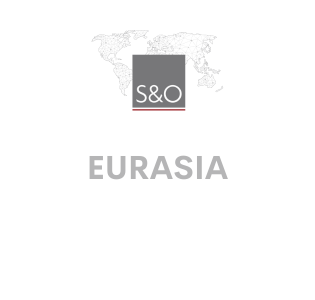New additional conditions in the agreement concluded by the Eurasian Economic Union regarding e-commerce entail new interesting changes in the market.
The agreement with the EAEU is aimed at recognizing the important role and importance of e-commerce within the framework of the Eurasian Union as a functioning single market for e-commerce goods. According to this agreement, legal procedures related to the import of e-commerce goods into the territory of the Union will be regulated by the Customs Code of the Union. However, the agreement does not apply to public procurement, exchange trading or telecommunications services.
For a person to be a «consumer» in this single market, they must under this agreement have permanent residence in a Union Member State or temporarily reside within the territory. A «seller» in this market is defined as a legal entity or individual engaged in entrepreneurial activity who will sell e-commerce products using telecommunications and the Internet. "Professional participants in the e-commerce market" will be defined as sellers or operators of electronic trading platforms that sell goods to consumers. "Goods" are defined as any movable property, with the exception of securities and/or currency valuables, traveller's cheques, and electricity.
The supply of related financial and transport services shall be in accordance with the Protocol on Coordinated Transport Policy.
Moreover, the Implementation of electronic commerce on the single market of the Union will be run by the Board of the Commission. It will establish the general requirements for the activities of the Union’s professional participants in the electronic commerce market; the rules for concluding and executing contracts electronically; a list of open data available to participants in the e-commerce market; a list of transport/shipping documents used by professional participants in the Union’s e-commerce market.
Rights of the consumers under this agreement will be protected by the Member States; their legislation may provide for additional consumer protection measures when providing ancillary services and purchasing and using digital goods. The Member States will also ensure that all participants in the electronic commerce market are given free access to open data included in the unified list of open data approved by the Council of Commission. The member states will also create laws and rules to ensure national security, prevent prohibited and unfair practices, and protect the interest of the e-commerce market participants.
The Commission shall also establish a register of self-regulatory associations for the purpose of forming the membership of the E-commerce Consultative Committee. They will also determine the way such a register shall be established and maintained. It will also maintain a list of systemically significant participants in electronic commerce. The Commission will also create an Advisory Committee of Electronic Commerce.
Overall, the Eurasian Intergovernmental Council approves the plans for the development of a single market for electronic commerce within the Union. It aims to protect consumers and sellers and establish liability for professional participants in the electronic commerce market.
Moreover, Member States shall, in developing and implementing measure to ensure this protection and reduce violations in the field of electric commerce, ensure coordinated action with respect to professional participants in the electronic commerce market.
12 Mar 2023
Kazakhstan
share




